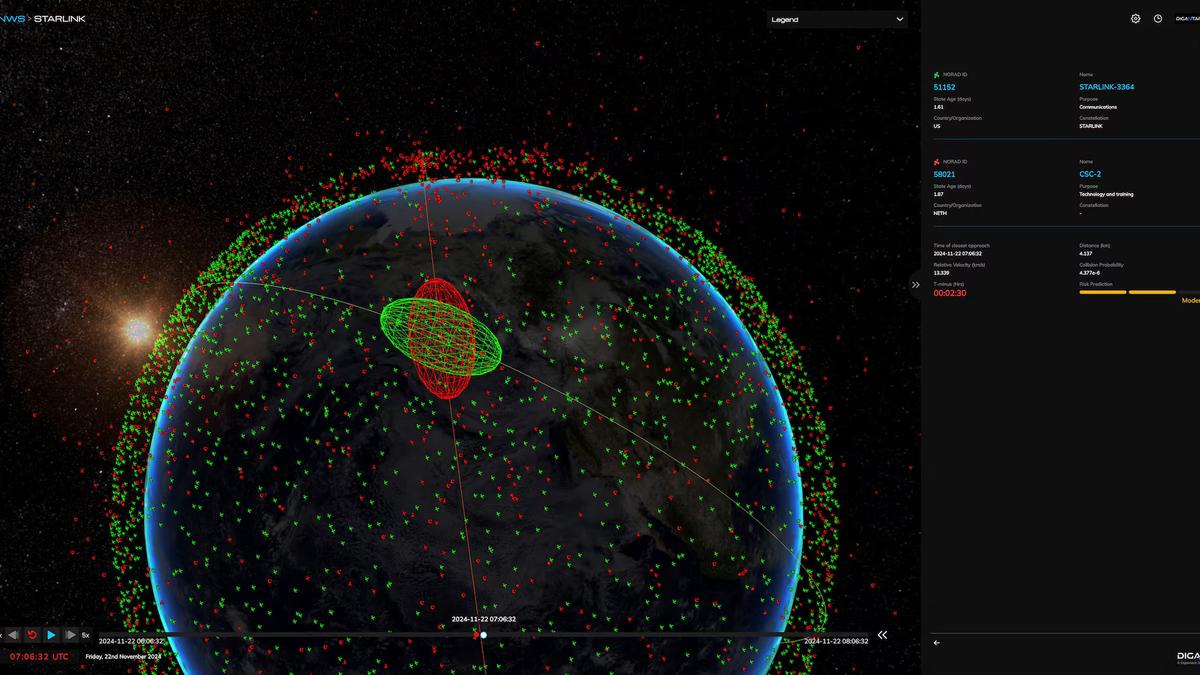
Global push for cooperation as space traffic crowds earth orbit
The Hindu
Experts warn that the rapid increase in satellites and space debris in low earth orbit requires urgent global cooperation.
The rapid increase in satellites and space junk will make low earth orbit unusable unless companies and countries cooperate and share the data needed to manage that most accessible region of space, experts and industry insiders said.
A United Nations panel on space traffic coordination in late October determined that urgent action was necessary and called for a comprehensive shared database of orbital objects as well as an international framework to track and manage them.
More than 14,000 satellites including some 3,500 inactive surround the globe in low earth orbit, showed data from U.S.-based Slingshot Aerospace. Alongside those are about 120 million pieces of debris from launches, collisions and wear-and-tear of which only a few thousand are large enough to track.
“There’s no time to lose on space traffic coordination. With so many objects being launched into space, we have to do everything we can to ensure space safety, and that means facilitating the sharing of information between operators, be they public or private, in order to avoid collisions,” said panel co-chair Aarti Holla-Maini, director of the United Nations Office for Outer Space Affairs.
Low earth orbit must remain safe to prevent costly disruption to the technology behind global communication, navigation and scientific exploration, she said.
Yet there is no centralised system that all space-faring nations can leverage and even persuading them to use such a system has many obstacles. Whereas some countries are willing to share data, others fear compromising security, particularly as satellites are often dual-use and include defence purposes. Moreover, enterprises are keen to guard commercial secrets.
In the meantime, the mess multiplies. A Chinese rocket stage exploded in August, adding thousands of fragments of debris to low earth orbit. In June, a defunct Russian satellite exploded, scattering thousands of shards which forced astronauts on the International Space Station to take shelter for an hour.

The Karnataka government has drafted a comprehensive master plan for the integrated development of Kukke Subrahmanya temple, the State’s highest revenue-generating temple managed by the Hindu Religious Institutions and Charitable Endowments Department. The redevelopment initiative is estimated to cost around ₹254 crore and aims to enhance infrastructure and facilities for devotees.












